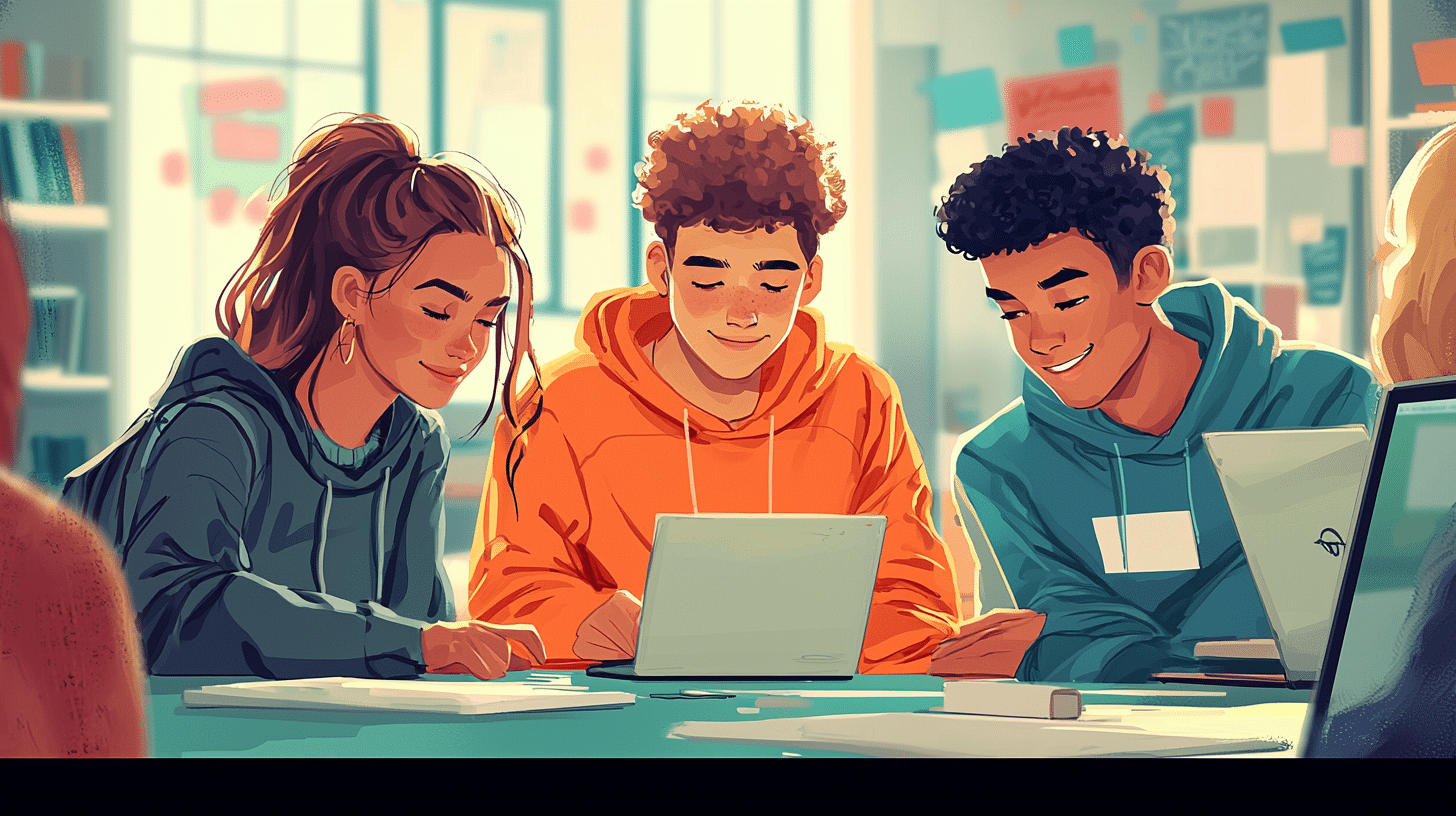Polish, a West Slavic language spoken primarily in Poland, is known for its rich history and vibrant culture. One particularly interesting aspect of learning Polish is exploring the words related to childhood and games. Whether you’re a language enthusiast, a parent teaching your child Polish, or a learner looking to expand your vocabulary, these words will provide a fascinating glimpse into Polish culture and daily life.
Common Polish Words for Childhood
Childhood is a universal experience, full of joy, learning, and growth. The following Polish words are commonly used to describe various aspects of childhood.
Basic Vocabulary
1. **Dziecko** – Child
– Pronunciation: /ˈd͡ʑɛt͡skɔ/
– Example: “Moje dziecko jest bardzo mądre.” (My child is very smart.)
2. **Niemowlę** – Infant
– Pronunciation: /ɲɛˈmɔvlɛ̃/
– Example: “Niemowlę potrzebuje dużo uwagi.” (An infant needs a lot of attention.)
3. **Maluch** – Toddler
– Pronunciation: /ˈmalux/
– Example: “Maluch zaczyna chodzić.” (The toddler is starting to walk.)
4. **Chłopiec** – Boy
– Pronunciation: /ˈxwɔpjɛt͡s/
– Example: “Chłopiec bawi się w ogrodzie.” (The boy is playing in the garden.)
5. **Dziewczynka** – Girl
– Pronunciation: /d͡ʑɛfˈt͡ʂɨŋka/
– Example: “Dziewczynka rysuje obrazek.” (The girl is drawing a picture.)
Family and Relationships
1. **Rodzice** – Parents
– Pronunciation: /rɔˈd͡ʑit͡sɛ/
– Example: “Rodzice są bardzo dumni z dziecka.” (The parents are very proud of the child.)
2. **Brat** – Brother
– Pronunciation: /brat/
– Example: “Mój brat jest starszy ode mnie.” (My brother is older than me.)
3. **Siostra** – Sister
– Pronunciation: /ˈɕɔstra/
– Example: “Moja siostra lubi tańczyć.” (My sister likes to dance.)
4. **Babcia** – Grandmother
– Pronunciation: /ˈbapt͡ɕa/
– Example: “Babcia piecze pyszne ciasta.” (Grandmother bakes delicious cakes.)
5. **Dziadek** – Grandfather
– Pronunciation: /ˈd͡ʑadɛk/
– Example: “Dziadek opowiada ciekawe historie.” (Grandfather tells interesting stories.)
School and Learning
1. **Szkoła** – School
– Pronunciation: /ˈʂkɔwa/
– Example: “Dzieci idą do szkoły.” (The children are going to school.)
2. **Nauczyciel** – Teacher
– Pronunciation: /nau̯ˈt͡ʂɨt͡ɕɛl/
– Example: “Nauczyciel jest bardzo miły.” (The teacher is very nice.)
3. **Klasa** – Class
– Pronunciation: /ˈklasa/
– Example: “Klasa jest duża i jasna.” (The class is large and bright.)
4. **Lekcja** – Lesson
– Pronunciation: /ˈlɛkt͡sja/
– Example: “Lekcja matematyki jest trudna.” (The math lesson is difficult.)
5. **Zeszyt** – Notebook
– Pronunciation: /ˈzɛʂɨt/
– Example: “Zeszyt jest pełen notatek.” (The notebook is full of notes.)
Common Polish Words for Games
Games are a crucial part of childhood, fostering creativity, teamwork, and problem-solving skills. Here are some common Polish words related to games and play.
Types of Games
1. **Gra planszowa** – Board game
– Pronunciation: /ɡra planˈʂɔva/
– Example: “Lubimy grać w gry planszowe.” (We like playing board games.)
2. **Gra wideo** – Video game
– Pronunciation: /ɡra ˈvʲidɛɔ/
– Example: “Dzieci spędzają czas grając w gry wideo.” (Children spend time playing video games.)
3. **Gra karciana** – Card game
– Pronunciation: /ɡra karˈt͡ɕana/
– Example: “Gra w karty jest bardzo popularna.” (Playing cards is very popular.)
4. **Gra komputerowa** – Computer game
– Pronunciation: /ɡra kɔmpuˈtɛrɔva/
– Example: “Gra komputerowa może być edukacyjna.” (A computer game can be educational.)
Play and Activities
1. **Zabawa** – Play/Fun
– Pronunciation: /zaˈbava/
– Example: “Dzieci uwielbiają zabawę na świeżym powietrzu.” (Children love playing outdoors.)
2. **Zabawka** – Toy
– Pronunciation: /zaˈbafka/
– Example: “Ta zabawka jest bardzo kolorowa.” (This toy is very colorful.)
3. **Klocki** – Blocks
– Pronunciation: /ˈklɔt͡ski/
– Example: “Klocki są idealne do budowania.” (Blocks are perfect for building.)
4. **Puzzle** – Puzzle
– Pronunciation: /ˈpʊzlɛ/
– Example: “Puzzle rozwijają umiejętności logiczne.” (Puzzles develop logical skills.)
5. **Piłka** – Ball
– Pronunciation: /ˈpʲiwka/
– Example: “Piłka jest niezbędna do wielu gier.” (A ball is essential for many games.)
Outdoor Play
1. **Plac zabaw** – Playground
– Pronunciation: /plat͡s ˈzabaf/
– Example: “Dzieci bawią się na placu zabaw.” (Children are playing on the playground.)
2. **Huśtawka** – Swing
– Pronunciation: /xuɕˈtafka/
– Example: “Huśtawka jest ulubioną zabawką dzieci.” (The swing is the children’s favorite toy.)
3. **Zjeżdżalnia** – Slide
– Pronunciation: /zjɛʐˈd͡ʑalɲa/
– Example: “Zjeżdżalnia jest bardzo długa.” (The slide is very long.)
4. **Piaskownica** – Sandbox
– Pronunciation: /pʲaskɔvˈɲit͡sa/
– Example: “Piaskownica jest pełna zabawek.” (The sandbox is full of toys.)
5. **Rowerek** – Tricycle
– Pronunciation: /rɔˈvɛrɛk/
– Example: “Dziecko jeździ na rowerku.” (The child is riding a tricycle.)
Popular Children’s Games
1. **Chowanego** – Hide and seek
– Pronunciation: /xɔvaˈnɛɡɔ/
– Example: “Dzieci grają w chowanego.” (The children are playing hide and seek.)
2. **Głuchy telefon** – Telephone game (Chinese whispers)
– Pronunciation: /ˈɡwuxɨ tɛˈlɛfɔn/
– Example: “Głuchy telefon to zabawna gra.” (The telephone game is a funny game.)
3. **Ciuciubabka** – Blind man’s bluff
– Pronunciation: /t͡ɕut͡ɕuˈbapka/
– Example: “Ciuciubabka to tradycyjna gra.” (Blind man’s bluff is a traditional game.)
4. **Raz, dwa, trzy, Baba Jaga patrzy** – Red light, green light
– Pronunciation: /raz dva tʂɨ baba ˈjaɡa ˈpatʂɨ/
– Example: “Dzieci grają w raz, dwa, trzy, Baba Jaga patrzy.” (The children are playing red light, green light.)
5. **Guma** – Chinese jump rope
– Pronunciation: /ˈɡuma/
– Example: “Dziewczynki skaczą przez gumę.” (The girls are jumping over the Chinese jump rope.)
Conclusion
Learning Polish words related to childhood and games not only enhances your vocabulary but also provides a window into the cultural nuances and everyday life in Poland. These terms, from basic vocabulary and family relationships to types of games and popular children’s activities, enrich your understanding of Polish language and culture. So, the next time you converse with a Polish speaker or immerse yourself in Polish media, you’ll recognize these words and phrases, making your language learning journey even more enjoyable and meaningful.
Keep practicing, and soon you’ll find that these words become second nature, bringing you one step closer to fluency in Polish. Happy learning!

